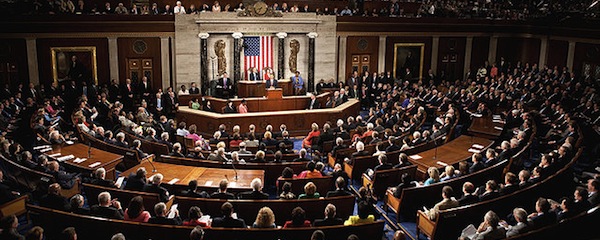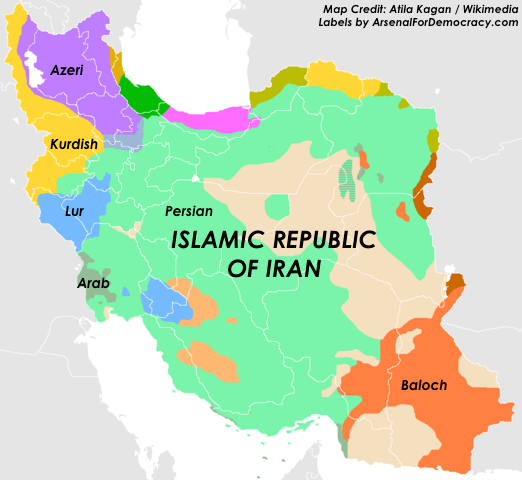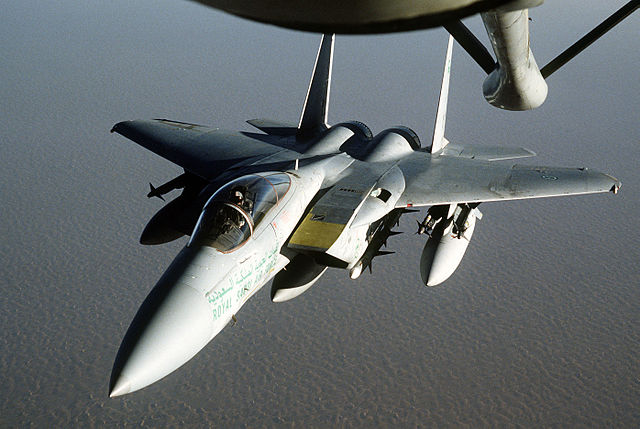Obama’s comment on a Humans of New York post featuring a family in Iran is an important symbolic gesture and a hopeful sign for the future. Although… seeing as it was just signed “bo” we can’t rule out that it was the family dog.
Tag Archives: Iran
Is Iran sending refugees to Syria as cannon fodder?
Arsenal Bolt: Quick updates on the news stories we’re following.
The Daily Star (Lebanon) — “Iran enlists Afghan refugees as fighters”
But interviews with Afghan fighters and relatives of combatants killed in Syria point to a vigorous – and sometimes coerced – recruitment drive of Shiite Hazara refugees by Iran’s elite Revolutionary Guard Corps propping up Assad’s floundering regime. […]
Haider, she said, was lured by the monthly salary of $700 – a tidy sum for a laborer with no combat experience – and the promise of an Iranian residency permit, an attractive inducement for refugees who otherwise live in constant fear of deportation. […]
Haider’s premonition came true – a few days after he left, an Iranian official informed his relatives, also refugees in Tehran, that he had been killed in battle.
Aug 19, 2015 – Ep. 139: Interview with Amb. Nicholas Burns
Posted by Bill on behalf of the team.

Topics: Guest expert Ambassador Nicholas Burns on the Iran nuclear deal. And: Discussion of the Republican debate and Planned Parenthood. Hosts: Bill, Kelley, Nate. Produced: August 14th and 16th, 2015.
Discussion Points:
– The details and benefits of the Iran deal from Ambassador Nicholas Burns, former lead U.S. negotiator
– Nate, Kelley, and Bill discuss the first Republican debate and the Trump phenomenon
– Kelley explains the latest opposition to Planned Parenthood
Episode 139 (56 min):
AFD 139
Guest Bio: Nicholas Burns
Ambassador Burns is the Roy and Barbara Goodman Family Professor of Diplomacy and International Relations at the Harvard Kennedy School of Government. He is Director of the Future of Diplomacy Project and Faculty Chair for the Programs on the Middle East and on India and South Asia. The Diplomacy Project focuses Harvard’s students, fellows and faculty on the importance of diplomacy in the 21st century global environment. He is also a member of Secretary of State John Kerry’s Foreign Affairs Policy Board, Director of the Aspen Strategy Group, and Senior Counselor at the Cohen Group.
As a career Foreign Service Officer, he was Under Secretary of State for Political Affairs from 2005 to 2008; the State Department’s third-ranking official when he led negotiations on the U.S.–India Civil Nuclear Agreement; and was the lead U.S. negotiator on Iran’s nuclear program. He has also served as the U.S. Ambassador to NATO and Greece and State Department Spokesman.
Related Links for Segments 2 and 3
– CBS News: Trump on Iraq and Jeb Bush
– Business Insider: “Jeb Bush: ‘Taking out Saddam Hussein turned out to be a pretty good deal'”
– AFD: “The surge is a lie. A really dangerous lie.”
– AFD: “When The Party’s Over: The 1820s in US Politics”
– Washington Post: “Ben Carson’s tortured defense of his fetal tissue research”
– Washington Post: “How Planned Parenthood actually uses its federal funding”
Subscribe
RSS Feed: Arsenal for Democracy Feedburner
iTunes Store Link: “Arsenal for Democracy by Bill Humphrey”
And don’t forget to check out The Digitized Ramblings of an 8-Bit Animal, the video blog of our announcer, Justin.
Podcast: Play in new window | Download
Subscribe: RSS
August 12, 2015 – Arsenal For Democracy 138
Posted by Bill on behalf of the team.

Topics: Key news stories from Syria, Iraq, Yemen, and Iran (and how it all relates to or affects U.S. policy in the region). People: Bill, Kelley, Nate. Produced: August 10th, 2015.
Discussion Points:
– Syria: The U.S. bombs fictional terror groups and Turkey bombs the Kurds.
– Iraq: On air conditioners and nation-building.
– Yemen: Saudi Arabia’s war and a horrific humanitarian crisis.
– Iran: Will the Iran Deal survive Congress? Will it change US-Israeli relations?
Episode 138 (56 min):
AFD 138
Related Links
– AFD: Syria Archives
– AFD: Iraq’s air conditioner uprising
– AFD: Yemen War Archives
– AFD: Iran Archives
Subscribe
RSS Feed: Arsenal for Democracy Feedburner
iTunes Store Link: “Arsenal for Democracy by Bill Humphrey”
And don’t forget to check out The Digitized Ramblings of an 8-Bit Animal, the video blog of our announcer, Justin.
Podcast: Play in new window | Download
Subscribe: RSS
Make peace, not war, easier in Congress
The anti-Iran hawks will get to vote against the nuclear deal, without sinking it – The Globalist:
To nix the deal, the Senate must ultimately be able to vote through a resolution against it by a veto-proof majority. And that would require 67 out of the 100 US senators coming out to vote against it (along with 290 U.S. House members).
[…]
As a general principle, of course, this is probably not a strategy to be recommended. The people’s representatives should, after all, be taking meaningful votes on most international agreements.
But for a particularly delicate multilateral negotiation involving war and peace, it is an ideal setup to stack the deck against the former and in favor of the latter.
Remarkably, even the United States Constitution did not set a two-thirds threshold for Congress in making declarations of war – a feature seemingly rendered moot since World War II. A mere majority in each chamber could plunge the country into war.
It has been far too easy for the United States to choose the path of war casually. The structure of the Congressional role on the Iran Deal fortunately makes it much harder in this one instance – while still letting the “bomb bomb bomb” caucus formally register its hawkish preferences.
It might not look it to the rest of the world, but by U.S. political standards in 2015, that’s a win-win.

3 Major Ethnic Minority Groups in Western Iran
Modern Iran traces its roots to ancient Persia and Persians remain a majority in the country. However, the country is home to many languages and ethnicities. Indeed, the share of non-Persians among Iran’s population, which totals 82 million people, is at least 39%, according to The World Factbook. Given that ethnicity can be a fluid concept, Iran’s non-Persian population might actually be closer to 50%. One indication is that only 53% of Iranians speak Persian. There are at least seven other languages spoken by a significant number of citizens.
All that being said, although Iran is thus a country of astounding ethnic, cultural, and linguistic diversity, Persians continue to dominate the country’s central government.
This brief report, produced by Arsenal For Democracy and The Globalist Research Center, covers three major ethnic minorities in western Iran today, examining their modern history and how their presence has affected post-Revolution relations between Iran and its neighbors. (Major western Iran minority ethno-linguistic groups not covered: Lurs, Gilaks, Mazanderanis.)

Map of selected ethno-linguistic minorities of Iran. (More info at Wikimedia)
Arab Iranians
Arabs are a small ethnic minority in Iran. They account for only about 2% of Iran’s population. Some 1.5 million Arabs live along the Iraqi border in southwest Iran. Arabs have lived there since the Islamic conquest of Iran 12 centuries ago.
Much of the Arab-dominated border area is within the country’s oil-rich Khuzestan Province, the center of the brutal Iran-Iraq War. Saddam Hussein invaded and occupied it in 1980. He did so, mistakenly believing Arab-Iranians would rally to him after protests and riots there during the 1979 revolution. Instead, they fled the area until the new Iranian revolutionary military could regroup and counterattack by 1982.
Khuzestan remains poor and was never fully rebuilt after the war. Deadly clashes between Arab-Iranians and security forces break out on a regular basis, including several in 2015. Separatists also sometimes stage terrorist attacks.
Kurdish Iranians
Iran’s four million Kurds predominantly populate a mountainous northwestern region of the country. Accounting for about 10% of Iran’s population, they have long harbored separatist tendencies.
In 1946, the Soviet Union tried to establish puppet buffer states in northwest Iran, including a Kurdish state. It had occupied the area in 1941 to block Germany from capturing Iran’s oilfields. However, unlike in the case of Eastern Europe, this early Cold War partition proved short-lived, after the Red Army decided to withdraw, pursuant to the UN Security Council’s second and third resolutions ever.
There are also separatist Kurds in Iraq, Turkey, and Syria. In Iraq, some six million Kurds comprise roughly 15-20% of the population. In Turkey, 14.3 million Kurds make up 18% of the population. In war-torn Syria, the Kurdish population is probably between one and two million and accounts for a much smaller share. Syria’s government has sometimes supported Kurdish militants as a counterweight against enemies or rivals, including Turkey. The four major Kurdish populations, totaling at least 25 million people, live largely contiguous to each other across national borders. While this proximity sometimes encourages cooperation between separatist groups, they have also often been rivals for influence within the Kurdish nationalist movement.
The leaders of Iran’s Islamic Revolution of 1979 viewed Kurdish ethnic separatism as a serious threat to their ideology of unity through religion. Kurdish separatists, who had helped overthrow the Shah earlier that year, saw the revolution as the moment for independence and began seizing control of their communities. However, Iran’s revolutionary armed forces focused on crushing this major Kurdish rebellion as early as 1980, even in the face of Saddam Hussein’s invasion into the Khuzestan province. Violence between the state and Kurdish separatists continues intermittently, 36 years later. The Kurds’ integration into Iranian society has also been limited.
Azeri Iranians
Iran is also home to at least 12 million Azeris, a Turkic-descended ethnicity comprising 16% of the country’s total population. They mainly live in the Iran’s northwest border provinces, next to the former Soviet republic Azerbaijan. That country has nearly nine million ethnic Azeris among its citizens, who account for about 92% of its 9.8 million people.
While concentrated in the northwest, Azeris live throughout Iran in conditions closely resembling those of the Persian majority. Despite sporadic problems, Azeris are comfortably integrated into Iranian society and hold positions of power in the government and military.
The revolutionary government, while opposed to Azeri nationalist activity in Iran, has defended Azeri-Iranians from persecution, in contrast with its own actions against Arabs or Kurds. Supreme Leader Ali Khamenei in 2006 said, “Azeris have always bravely defended the Islamic revolution and the sovereignty of this country.”
Ethnic Azeris have been divided between Iran and Azerbaijan (formerly part of Russia and then the USSR) since 1828, when Iran was pushed out of the Caucusus by a peace treaty with the growing Russian Empire.
Both Iran and Azerbaijan are Shia-majority Muslim nations, of which there are only four in the world; the others are Iraq and Bahrain. However, Azerbaijan is largely secular in practice, in contrast with the public religiosity of Iran’s Islamic Republic.
During the post-Soviet war between Azerbaijan and Armenia over the disputed Nagorno-Karabakh region in the early 1990s, Iran economically aided Armenia after Azerbaijan’s president suggested a desire to unify “Greater Azerbaijan.” This threatened Iranian sovereignty, since a majority of all Azeris live in Iran.
Iran’s regional rivals Turkey and Israel also formed lasting military and economic ties with Azerbaijan during the war.
Despite some continued bilateral tension, an unofficial strategic understanding has been reached: Iran will not try to spread Islamic Revolution to Azerbaijan, while Azerbaijan will not foster ethnic separatism inside Iran. Neither country’s Azeri population seems to be interested in pursuing such an option anyway.
Only more fighter jets can calm Gulf state nerves now
Arsenal Bolt: Quick updates on the news stories we’re following.
“The Iran Deal: Just Another Sales Opportunity” – The Globalist
The Gulf countries are lusting for more U.S. military hardware. Washington’s influence peddlers love that. By Stephan Richter:
[…] the deal has actually turned into a major business opportunity for him and his firm. “Take the Gulf states, for example,” he said.
“They are obviously very nervous about the U.S. government doing a deal with Iran, which they consider their arch enemy – not least because of the Shiite connection. Same for the Saudis. And that’s a good thing.
“Why then worry about what’s in it for Iran or not? While these Gulf nations complain about the deal very publicly and very loudly, all this translates into in the real world is an ardent desire on the part of these countries to buy even more arms from the United States. What’s not to like about that?”
Obviously, the man’s “consulting” firm was operating as an eager facilitator for such transactions. Those deals all translated into very nice sales commissions, which would boost his and other senior managers’ annual salaries big time.





